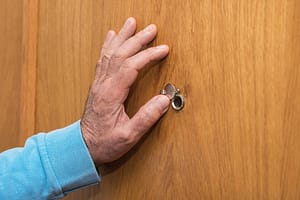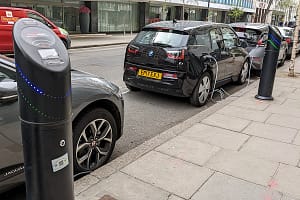If you’re self-employed, you can deduct expenses to reduce your tax bill. It’s important sole traders and freelancers understand what these expenses are—even if you’re paying an accountant to help with your tax return.
‘Allowable expenses’ is the term used by HMRC to categorise what you can claim tax back on in relation to running your business. Expenses can reduce the average sole trader’s tax bill—often significantly.
‘Simplified expenses’ can also be used to make expense calculations easier. These are flat rates which enable you to quickly calculate tax relief on vehicles, working from home and living on your business premises.
Get 3 months Sage accounting free
Self-employed allowable expenses
Note: the rules for traditional accounting can be slightly different, this list assumes you’re using cash basis accounting. The list below covers some of the things you can claim for and can be considered when completing your Self Assessment tax return.
Office equipment and tools
Although tax cannot be claimed back on small tools, you can claim on the following if your business has used them for less than two years: laptops, PCs, printers, and computer software.
Stationery and communications
Allowable expenses: Paper, envelopes, pens, postage, printing (printer ink and cartridges), and business phone, mobile and internet bills.
Note: if your phone, mobile and internet are used for both personal and business use, you can only claim tax back on part of it (i.e. the part used for business). If this can’t be demonstrated, you can’t claim any tax back.
Professional and financial services
Allowable expenses:
- Accountants, lawyers, surveyors and architects (which were hired by your business) and other professional fees incurred when taking advice (business-related).
- Business bank account, overdraft, and credit card charges
- Interest on business loans
- Hire purchase, lease, or other financial payments for equipment
Staff and employee costs
Allowable expenses: employee and staff salaries, bonuses, pensions, benefits, staff and employee costs, agency fees, subcontractors, and employer’s National Insurance contributions.
Travel costs
Allowable expenses: travel for business, including train, bus, taxi, airfares, and accommodation costs.
Note: you can only claim for travel if the main reason for your travel/stay was for business. However, if your travel was part business and part pleasure, and you can show this split, you can claim for tax relief on the business-related costs.
Car and vehicle costs
Allowable expenses: petrol, insurance, and repairs, as long as the vehicle is used for your business.
Mileage allowance
You can either sum up your annual motoring expenses and calculate the business element of this cost, which can take significant time and effort, or claim mileage allowance. This simpler flat rate covers the running costs of your vehicle.
Other vehicle-related allowable expenses: congestion and low-emission zone charges, parking, breakdown cover and hire charges.
Note: again, you can only claim for these expenses if they are business-related. Also, you cannot claim tax back on driving/parking fines.
Clothing
Allowable expenses: uniform (this does not include your everyday wear, i.e. a suit), special protective clothing and entertainer clothing (i.e. costumes for stage/TV/film performance). You can also claim for washing, repairing or replacement of uniform or special protective clothing.
Food
If food and drink is consumed as a business expense, outside your usual working routine (i.e. business trips), you can claim this as an allowable expense.
Stock and materials
Allowable expenses: products that you resell (i.e. stock), raw materials used to produce goods for sale and direct costs from goods production.
Professional fees
You can claim tax relief on professional trade body/organisation membership fees, as well as subscriptions to professional or trade journals.
Pension contributions
You can claim tax relief on any contributions you make.
What expenses can I claim when working from home?
If you run your business from home, you can only claim tax back on the proportion of those expenses that relate to the space you use for your business, including heating, electricity, council tax and mortgage interest.
How can I track my allowable expenses?
It’s important to keep track of your business expenses with well organised records. Although it’s a requirement to keep records for five years (after 31 January of the relevant tax year), it’s also helpful for you as it removes the stress when, for example, Self Assessment tax return time comes around.
- The most efficient and accurate way to get organised is by using accounting software, such as Sage Accounting. This software offers the following features:
- Create, personalise, and email your invoices in a single click
- Connect your bank to automatically pull in transactions, so you never miss a payment
- Snap and capture receipts and expenses
- Keep track of your purchases and sales in easy-to-view dashboards and reports
- 24/7 free, award-winning support telephone support
Don’t miss this incredible offer, for a limited period.
Get 3 months Sage accounting free
How do I claim my self-employed business expenses?
Once you have calculated your allowable expenses, add the details to your tax return. Of course, this process is much easier if you have used an accounting software such as Sage Accounting.
To summarise
If you get stuck, or you need a hand getting started, an accountant or tax adviser can support you further with working out your allowable expenses.
Allowable expenses can make a significant difference to your cash flow. Also, working out whether an expense can be claimed back or not can make the tax return process much easier, and you could end up with a small fortune to use to grow your small business further. Get Sage Accounting software now and get organised.






Leave a Comment